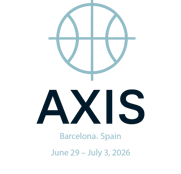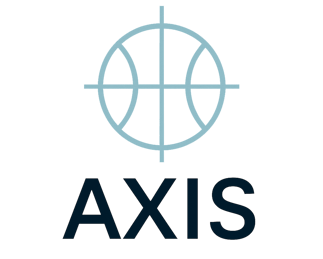
Explore our comprehensive schedule, featuring esteemed speakers and engaging sessions for all attendees.


Keynote Speakers
List is being prepared
Session Topics
🔹 Session Topics at Axis 2026
Axis 2026 embraces the full spectrum of mathematical inquiry, offering a diverse and interdisciplinary program that reflects both the historical depth and evolving frontiers of the field. Each thematic session is curated to foster rigorous discussion, cross-field collaboration, and the discovery of new perspectives.
🧮 Algebra, Number Theory & Algebraic Geometry
This session explores the abstract foundations that underpin modern mathematical thought, from the structures of rings, fields, and groups to the deep arithmetic properties of integers and polynomials. Topics include modular forms, Diophantine geometry, Galois representations, and advances in algebraic geometry. Researchers will delve into both classical results and breakthroughs with implications for cryptography, coding theory, and mathematical logic.
📐 Geometry & Topology
From the smooth curves of Riemannian manifolds to the complexities of higher-dimensional topology, this session navigates the intricate landscape of shapes, spaces, and their continuous transformations. Topics span from geometric group theory and knot theory to low-dimensional topology, symplectic geometry, and applications in physics. A focus is placed on how geometric thinking unifies seemingly disparate areas of mathematics.
🔄 Mathematical Logic & Foundations
This session centers on the principles that define the nature and scope of mathematics itself. Areas include model theory, proof theory, set theory, and computability. Discussions will highlight the role of logic in the structure of mathematical reasoning, its interactions with philosophy, and its modern applications in theoretical computer science and AI verification.
📊 Probability, Statistics & Stochastic Processes
In an uncertain world, this session examines how mathematics models randomness, risk, and inference. Topics include stochastic calculus, random graphs, probabilistic combinatorics, statistical mechanics, Bayesian theory, and machine learning theory. Emphasis will be given to both pure probabilistic structures and their role in real-world modeling — from finance to biology.
📉 Analysis & Partial Differential Equations (PDEs)
This session addresses the continuum side of mathematics, from functional and harmonic analysis to the study of dynamic systems governed by PDEs. With connections to physics, engineering, and fluid mechanics, it covers the analytic tools needed to understand waves, heat, diffusion, and chaos. Both theoretical advances and numerical methods are welcomed.
🧬 Mathematical Biology & Biophysics
At the interface of life and logic, this session explores how mathematical models illuminate biological phenomena. Topics include systems biology, mathematical epidemiology, bioinformatics, molecular dynamics, and structural biology. Special emphasis will be given to emergent behavior, pattern formation, and geometry in biological systems.
🧠 Computational Mathematics & Theoretical Computer Science
Focused on algorithms, complexity, and discrete structures, this session brings together mathematicians and computer scientists working on efficient computation and theoretical limits. Topics include algorithmic graph theory, combinatorics, optimization, automata theory, quantum computing, and computational geometry.
🌍 Applied Mathematics, Modeling & Interdisciplinary Methods
Mathematics doesn’t exist in isolation — this session celebrates its role in modeling complex systems across the sciences and engineering. Areas include mathematical modeling of climate systems, energy grids, social networks, and economics. Particular attention is given to models that influence policy, technology, and societal change.
🔷 Scientific Program
A Dynamic and Diverse Exploration of Mathematical Thought
The scientific program of Axis 2026 has been designed to reflect the vast scope and evolving landscape of contemporary mathematics. Spanning five full days, the conference will feature a structured yet fluid balance of academic rigor, collaborative dialogue, and intellectual inspiration. Each session has been carefully curated to encourage cross-disciplinary insight while honoring the precision and beauty inherent to each mathematical branch.
🧩 Core Program Structure
Morning Plenary Sessions
Each day will begin with high-level lectures addressing foundational themes and emerging directions in mathematics. These talks will aim to connect broad areas of interest and spark conversations that continue throughout the day.Parallel Thematic Sessions
Running throughout the mid-morning and afternoon, these focused sessions will cover a wide range of mathematical disciplines, with talks selected for their originality, technical depth, and relevance to current research frontiers.Interactive Workshops & Discussion Panels
Scheduled in the late afternoons, these sessions will offer informal yet substantive engagement on specific challenges or intersections between fields. These may include computational methods in algebraic geometry, the role of symmetry in physics and topology, or mathematics in climate and epidemiological modeling.Poster Presentations & Young Researcher Highlights
Dedicated space will be provided for early-career researchers to present their work in poster format. Select submissions will be invited to deliver short spotlight presentations, ensuring rising voices are heard and integrated into the broader dialogue.
📚 Special Program Features
Mathematics Across Disciplines
Several sessions will explore how mathematics interfaces with biology, data science, social systems, and artificial intelligence. These are designed to both broaden the mathematical toolkit and showcase how theoretical advances translate into real-world insights.Mathematical Heritage & Philosophy
Axis 2026 will also reflect on the philosophical and historical underpinnings of mathematical inquiry — with discussions on foundational questions, formal systems, and the evolution of proof and abstraction.Open Problems Forum
A unique feature of the program, this session will be dedicated to the live discussion and formulation of key open problems in selected fields. Participants will be invited to contribute perspectives, identify obstacles, and propose potential paths forward.
🧭 A Program with Purpose
Axis 2026 is committed to fostering an environment where deep thinking is encouraged, collaboration is cultivated, and questions matter as much as answers. Whether you are revisiting foundational truths or exploring uncharted territories, the program is designed to engage your curiosity, sharpen your insight, and leave you with ideas worth pursuing far beyond the conference itself.
🕰️ Daily Program Structure
Axis 2026: A Thoughtfully Curated Schedule for Discovery, Dialogue, and Connection
Each day at Axis: The European Conference on Mathematical Thought is designed to balance deep intellectual engagement with opportunities for informal exchange, reflection, and exploration. The schedule is carefully crafted to maximize the academic value of the sessions while allowing participants to enjoy the vibrant city of Barcelona and connect meaningfully with peers from around the world.
🔹 08:00 – 09:00 | Registration & Morning Coffee
Attendees are welcomed with freshly brewed coffee and light breakfast refreshments in the main lobby. An ideal setting to settle in, browse the poster area, and reconnect with colleagues before the formal sessions begin.
🔹 09:00 – 10:00 | Plenary Lecture
Each morning opens with a single plenary lecture held in the main auditorium — a unifying session that gathers all attendees around one of the conference’s most compelling mathematical themes or challenges of our time.
🔹 10:15 – 12:00 | Parallel Thematic Sessions (Block 1)
A range of focused sessions run in parallel across several rooms, covering core mathematical disciplines. Talks are typically 25 minutes each, with time for Q&A and moderated transitions between speakers. Topics vary daily and include foundational theory, interdisciplinary research, and modern applications.
🔹 12:00 – 13:30 | Lunch Break & Informal Networking
Buffet-style lunch is served across designated areas, including both indoor dining spaces and open-air terraces overlooking Barcelona’s skyline. Vegetarian, vegan, and gluten-free options are available. A perfect time to meet new researchers, chat with session chairs, or connect with potential collaborators.
🔹 13:30 – 15:00 | Parallel Thematic Sessions (Block 2)
Afternoon sessions resume with a new set of speakers and topics. These may include contributed talks, selected short lectures from early-career researchers, or panels on key mathematical intersections (e.g., “Algebra and AI” or “Geometry in Data”).
🔹 15:00 – 15:30 | Coffee & Poster Viewing Break
Fresh coffee, herbal teas, and pastries are served in the exhibition and poster hall. This time is set aside for meaningful engagement with poster presenters, particularly graduate students and postdocs. Poster facilitators will be present to foster discussion.
🔹 15:30 – 17:00 | Special Sessions & Workshops
Late-afternoon slots are devoted to more dynamic formats:
Interactive problem-solving workshops
Panel discussions on methodology or open problems
“Lightning talks” (7–10 min) from selected abstracts
Cross-disciplinary roundtables
These sessions are designed to deepen the dialogue and explore connections between theory, application, and innovation.
🔹 17:15 – 18:00 | Open Problems Forum / Public Lecture (Alternate Days)
On alternating days, attendees can join either an Open Problems Forum — where key research questions are proposed and debated — or a Public Engagement Lecture, open to the wider Barcelona academic community and general public.
🌇 Evening Social & Cultural Activities
Each evening offers optional social programming such as:
Welcome Reception (Monday)
Guided Historical Tour of Barcelona’s Gothic Quarter (Tuesday)
Rooftop Networking Cocktail (Wednesday)
Conference Banquet at a historic venue (Thursday)
Informal Farewell Gathering (Friday)
These events are designed not just for relaxation, but to strengthen the collaborative spirit and lasting community that Axis aims to cultivate.
🎓 Additional Daily Features:
Speaker Preparation Rooms
Quiet Zones for focused work
Book Fair & Publisher Exhibition
Meeting Corners for one-on-one sessions with journal editors or research funders
Live Translation & Accessibility Services available in main halls


Conference
Join us for an engaging math conference experience.
Register
© 2025. All rights reserved.


